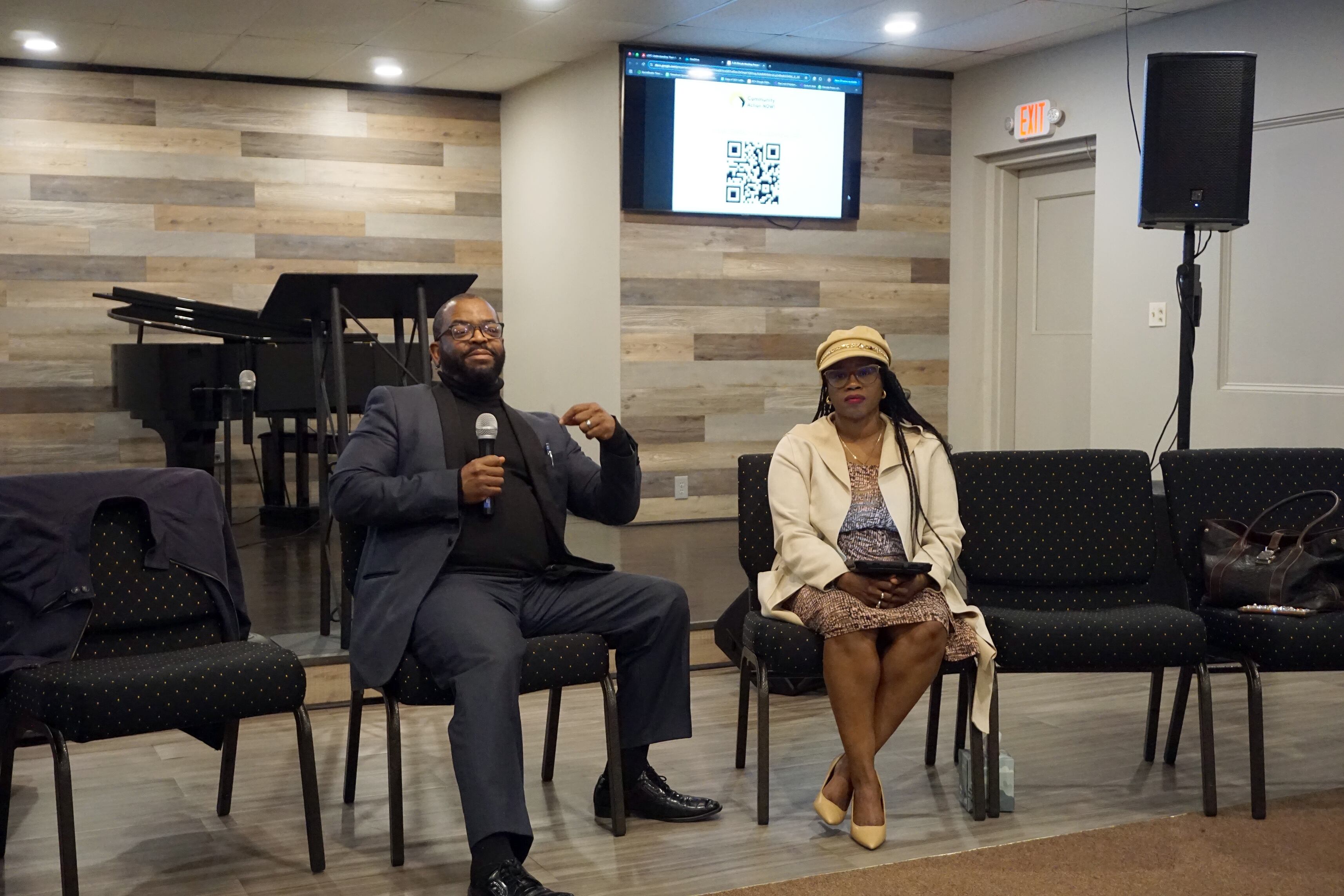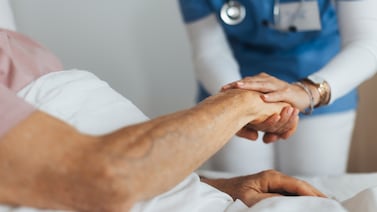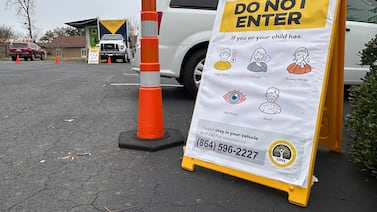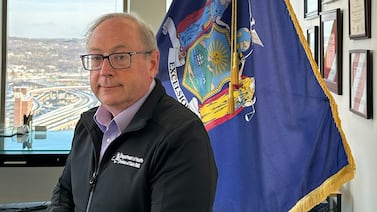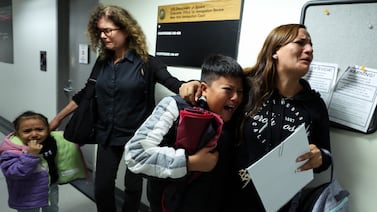Public health, explained: Sign up to receive Healthbeat’s free Atlanta newsletter here.
A community organizer and the Morehouse School of Medicine are launching a project to study the long-term physical and mental effects of a chemical plant fire outside Atlanta that polluted the air for over a month.
About 17,000 Rockdale County residents were urged to evacuate their homes in September after the BioLab chemical plant caught fire, sending plumes of multicolored gas into the air, causing coughs, and skin, throat and eye irritation for some. The fire also prompted the closing of schools and businesses for weeks.
The Conyers facility, which made and distributed stored pool cleaning chemicals, had a poor safety record, with at least three previous fires: one in May 2004 and two in September 2020.
Since the fire, residents have joined class-action lawsuits and rallied to demand that BioLab leave Conyers.
Researcher James Washington of Morehouse School of Medicine and community organizer Iffat Walker, executive director of Community Action Now!, a nonprofit advocacy group, have teamed up to explore the health effects of the fire.
The three-year “Post-Fire Public Health Recovery Project” will focus on Rockdale, Walton, Newton, DeKalb, Gwinnett, and Henry counties, Walker said.
The project will use a “community-based system dynamics” model to incorporate residents’ views, experiences, and concerns into the research.
“There’s no way that you know the community is going to be made whole unless we make sure that this particular project is community led,” Walker said. “That means we’re not dictating the solutions. We’re listening, we’re learning, and we’re collaborating.”
The first step in the project is to collect data from people affected by the fire, Walker said. Organizers plan next month to ask people to fill out a survey. People can sign up to be notified about the survey and other developments on the Community Action Now website.
That initial data will help frame the topics for further research, Washington said.
The project will also include a component to track the medical histories of people who live and work in the target areas.
Mental health will also be a focus. Washington said semi-structured interviews will provide an opportunity for people to share how the fire affected them. “It fills in the blanks of what some of the quantitative research shows. … It tells a bigger picture.”
The project will produce publishable research and easily accessible data that can inform policy, Washington said.
In other BioLab news:
- The Rockdale County Local Emergency Planning Committee has started meeting again. It met earlier this month with plans to meet again in early March. The purpose of the committee is to prepare for disasters and chemical accidents. The Rockdale County committee was disbanded prior to the BioLab fire but has been revived.
- A lawsuit against BioLab filed by Rockdale County is continuing, with initial fact discovery scheduled for later this year.
- Several class-action lawsuits have been consolidated into one case that is proceeding in the U.S. District Court of Northern Georgia.
- The Shutdown BioLab coalition had considered pursuing legal action against Rockdale County for issuing a business license to BioLab. The coalition decided not to pursue this for legal reasons, said Paul Glaze, an organizer with the Georgia Conservation Voters Education Fund who helps lead the Shutdown BioLab coalition.
Rebecca Grapevine is a reporter covering public health in Atlanta for Healthbeat. Contact Rebecca at rgrapevine@healthbeat.org.

